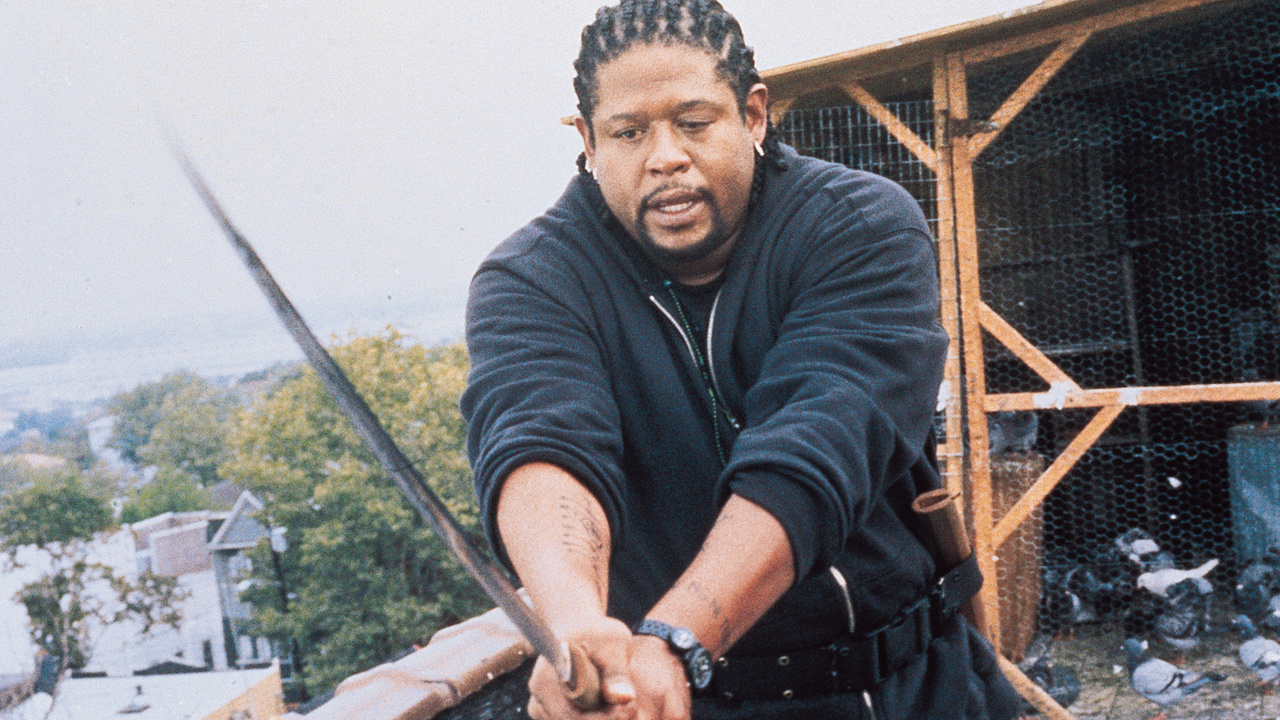Jim Jarmusch is not known as an auteur in either the action or the comedy genre, but this movie shows that he can do both. Sometimes it is ambiguous as to whether he is making fun of or paying homage to genre classics (why not both?). Still, he approaches many tropes with his quirky twists, while wearing the influence on his sleeves:
Melville's Le Samurai, Kurosawa's Rashomon, the Godfather series (and very likely Scorsese's Italian gangster movies that I have not seen), John Singleton's South Central gangster movies in the 1990s, and, of course, Tom and Jerry and other old violent cartoons. I don't know whether he was also influenced by the pulpier old chanbara movies (e.g., Lone Wolf and Cub) and John Woo's HK gangster films, but the vibe is definitely there.
The odd friendship between Raymond the ice cream guy and Ghost Dog, in which they express the same sentiment and information in different languages without understanding each other, speaks for Jarmusch's theses that language barriers cannot separate the same love and passion for violent, bloody cinema all around the world.
Before it became a thing, Jarmusch made his commentary on decrepit elderly gangsters. Every scene in which the old farts bicker with each other is comic gold. All the actors had fantastic timing and deadpan humor. Also, long before John Wick, Forest Whitaker had some hilarious, cartoon-inspired assassination ploys that are as inventive and delightful as ever. I wish more action movie directors would take a look at this movie and find some inspiration in the set pieces.
By casting the inimitable Whitaker and putting him in the midst of a flurry of pigeons, Jarmusch is obviously making a reference to his earlier role in "Bird" (1988), in which he played Charlie Parker and won best actor at Cannes.
With 2023 hindsight, I have a couple of gripes about the movie. The first is the utter uselessness of the female character (the daughter of one of the mobsters, played by Tricia Vessey). Sure, one could argue that women had little to do in the gangster genre and all the classics he referenced. Unfortunately, there is a little too much resemblance to the singer in Le Samurai with zero understanding of her central function in that movie. Her makeup is strikingly similar to Uma Thurman in Tarantino's Pulp Fiction, which had come out only 5 years before, but her material is vastly inferior in comparison.
The second complaint is the uncomfortable racial symbolism in this mock retainer-master relationship between Ghost Dog and Louie. The ending, which I understand is an intentional nod to Le Samurai and a weak and superficial understanding of Japanese samurai movies, nevertheless holds up poorly over time.

